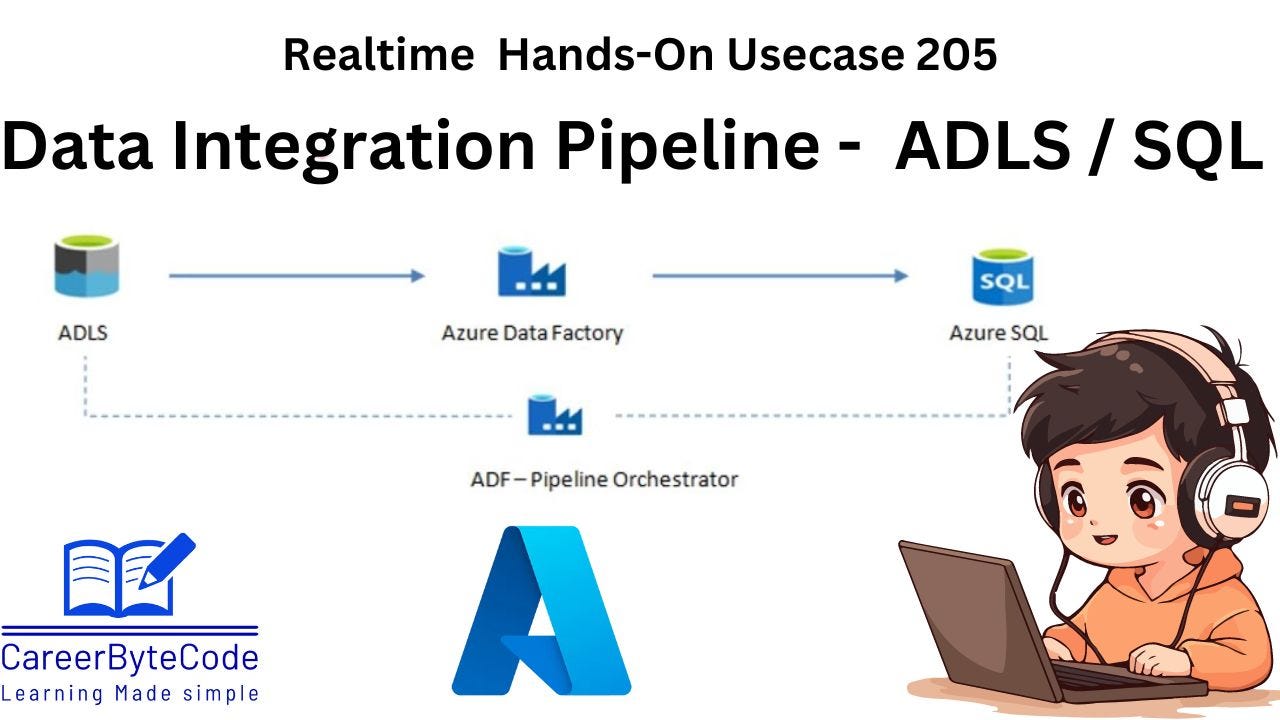Mastering Data Migrations: ADLS to Azure SQL Using Data Factory
As data grows in volume and complexity, companies need reliable and efficient tools to transfer and transform data from one platform to another.
1. Why We Need This Use Case
As data grows in volume and complexity, companies need reliable and efficient tools to transfer and transform data from one platform to another. Azure Data Lake Storage (ADLS) serves as a scalable data repository for raw or transformed data, while Azure SQL Database provides a structured environment for relational data. Moving data from ADLS to Azure SQL allows businesses to transform and analyze data for reporting, machine learning, and business intelligence use cases.
By automating this process using Azure Data Factory (ADF), we eliminate manual data migrations, reduce errors, and enable near-real-time data flow for better insights and decisions.
2. When We Need This Use Case
This use case is essential in the following scenarios:
When you have raw or semi-structured data in Azure Data Lake and need to process it for relational database reporting and analysis.
When migrating large datasets from ADLS to SQL for business intelligence or machine learning tasks.
When you require automated and scheduled data ingestion pipelines from your data lake to SQL databases.
When performing ETL (Extract, Transform, Load) processes to transform and load data into a SQL database.
When you need to ensure that data in SQL is continuously updated from the data lake for real-time analytics.
3. Challenge Scenarios
Keep reading with a 7-day free trial
Subscribe to CareerByteCode’s Substack to keep reading this post and get 7 days of free access to the full post archives.



